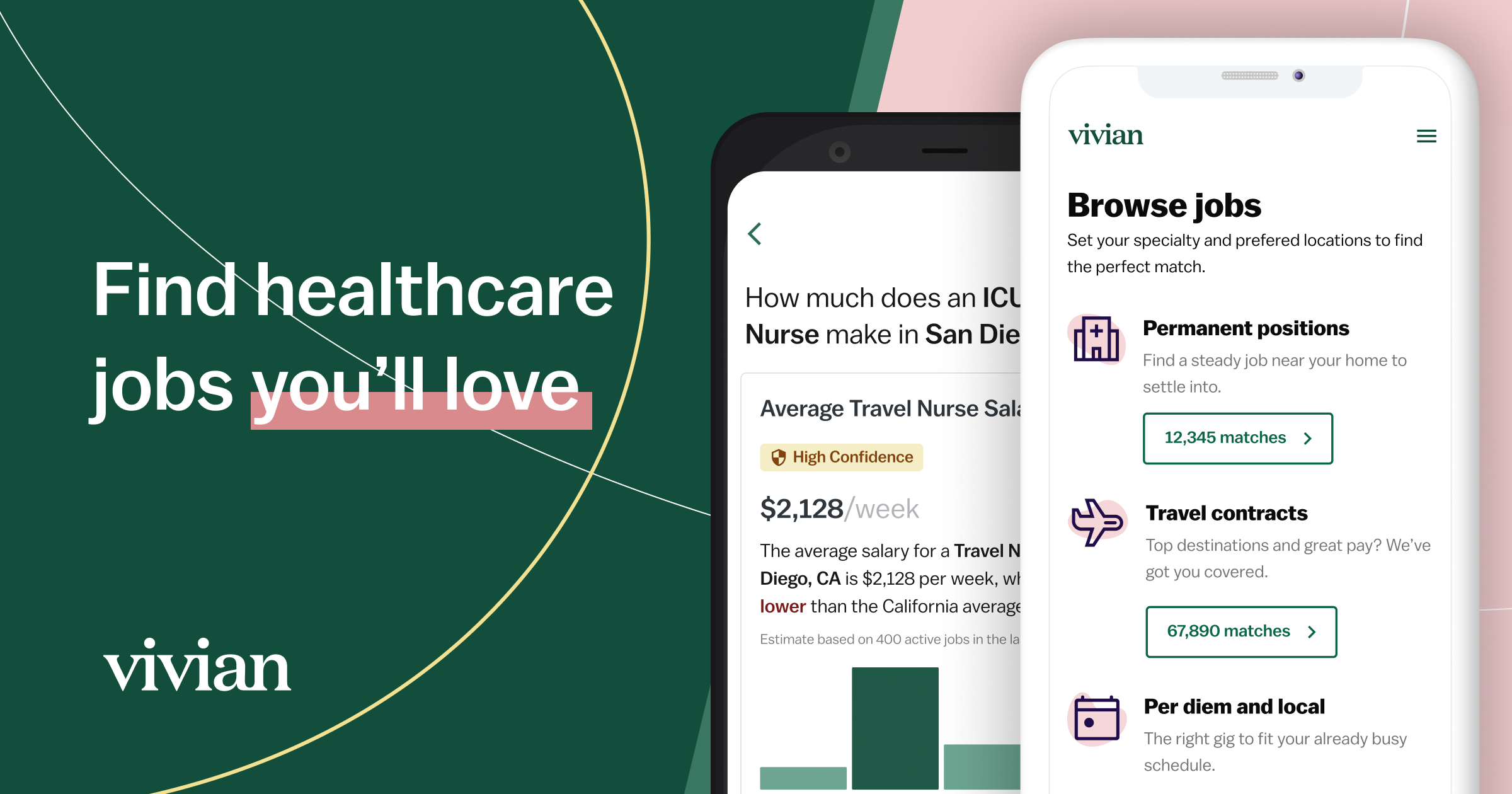Are you a physician assistant considering a specialty that truly makes a difference? Perhaps you are just starting your healthcare journey and want to find a career that offers both intellectual challenge and deep personal reward. Physician assistant oncology jobs stand out as a particularly meaningful choice within the medical field. It's a calling that combines advanced medical knowledge with a compassionate approach to patient care, very much focusing on supporting individuals through some of their toughest times.
Working in cancer care as a physician assistant means you become a central figure in a patient's treatment plan. You will collaborate with doctors, nurses, and other specialists, providing direct patient support and helping manage complex conditions. This work is about offering hope and practical assistance, so it's a very human-centered role that really helps people.
The need for skilled healthcare professionals, including physician assistants, continues to grow, especially in specialized areas like oncology. This article explores what physician assistant oncology jobs involve, why they are so important, and how you might pursue such a fulfilling career. You will find, as a matter of fact, that this field offers a lot of opportunities for growth and contribution.
- Anna Wintour Without Glasses
- Brittany Mahomes Announces Shes Already Planning On Decorating For Christmas
Table of Contents
- What Do Physician Assistant Oncology Jobs Really Entail?
- Why Choose Physician Assistant Oncology Jobs?
- Education and Training for Oncology PAs
- Compensation and Career Growth for Oncology PAs
- Finding Your Place: Tips for Securing Physician Assistant Oncology Jobs
- Common Questions About Oncology PA Roles
- Next Steps for Aspiring Oncology PAs
What Do Physician Assistant Oncology Jobs Really Entail?
Physician assistant oncology jobs involve a wide range of responsibilities focused on helping cancer patients. These professionals work closely with oncologists, providing medical care and support throughout the patient's treatment journey. It's a role that demands both clinical skill and a deeply empathetic approach, you know, because patients are often going through very difficult times.
From initial diagnosis to ongoing treatment and follow-up care, an oncology PA plays a vital part. They often see patients for routine visits, manage symptoms, and educate families. This means they are often a primary point of contact for patients, which is a big responsibility, so you have to be ready for that.
A Day in the Life of an Oncology PA
A typical day for a physician assistant in oncology can be quite varied, depending on the specific practice setting. You might start your morning reviewing patient charts and discussing treatment plans with the supervising physician. Then, you could spend a good part of the day seeing patients in the clinic, conducting physical exams, and ordering diagnostic tests, which is pretty common.
Later in the day, you might administer chemotherapy, manage medication side effects, or provide urgent care for patients experiencing complications. There is also a significant amount of time spent on patient education, explaining diagnoses, treatment options, and what to expect during therapy. It's a very active role, as a matter of fact, with many different tasks.
For example, a PA might meet with a patient newly diagnosed with a particular cancer. They would explain the disease in clear terms, discuss the proposed treatment plan, and answer all the patient's questions. This kind of interaction builds trust and helps patients feel more prepared, and that is very important.
Working with Patients and Teams
Working in physician assistant oncology jobs means you are constantly interacting with people. You become a consistent presence for patients and their families, offering medical guidance and emotional support. It's a very personal connection you build with them, you know, as they go through their care.
Collaboration is also a huge part of the job. Oncology PAs work within a multidisciplinary team that includes oncologists, radiation therapists, nurses, social workers, and dietitians. This teamwork ensures that patients receive complete and coordinated care, which is really how the best results happen.
You will participate in team meetings, discuss patient cases, and contribute your insights to develop the best possible care plans. This collaborative spirit helps everyone learn from each other and provides a holistic approach to patient well-being, so it's a very supportive environment.
Why Choose Physician Assistant Oncology Jobs?
Choosing physician assistant oncology jobs offers unique rewards that many find deeply satisfying. It's a field where your skills directly impact lives in a very profound way. There is a real sense of purpose that comes with this kind of work, as a matter of fact.
The medical advancements in cancer treatment are always happening, so this specialty is always evolving. This means PAs in oncology often get to learn about and apply the newest therapies and technologies. It keeps the work interesting and challenging, which is something many healthcare professionals look for.
The Growing Need for Oncology PAs
The demand for healthcare providers, especially physician assistants, continues to grow across the United States. This trend is particularly noticeable in specialized areas like oncology, where patient numbers are increasing. As of 2024, there's a clear need for more skilled professionals to help manage cancer care, and that's a good thing for those considering this path.
With an aging population and improved detection methods, more people are receiving cancer diagnoses. This creates a greater need for PAs who can assist oncologists, manage treatment protocols, and provide ongoing patient support. This means that physician assistant oncology jobs are likely to be quite available for the foreseeable future, which is pretty reassuring.
A recent report on healthcare staffing indicated a steady increase in the employment of physician assistants in specialty fields. This growth reflects the value PAs bring to medical teams, helping to expand access to quality care and reduce physician workloads. It really shows how important these roles are becoming.
Making a Difference Every Day
Perhaps the most compelling reason to pursue physician assistant oncology jobs is the chance to make a tangible difference in people's lives. You will be there for patients during incredibly vulnerable moments, offering comfort, clarity, and expert care. It's a deeply human connection that you form, you know, and that feels very good.
Witnessing a patient's progress, celebrating their milestones, and helping them manage difficult symptoms can be incredibly rewarding. Even in challenging situations, knowing you provided the best possible care brings a unique sense of fulfillment. This kind of work really leaves an indelible mark on you, and that's a powerful thing.
For many PAs, the ability to support patients and their families through a cancer diagnosis and treatment is the driving force behind their career choice. It's a field where compassion and clinical skill meet, creating a truly impactful role. You basically get to be a source of strength for others, which is pretty special.
Education and Training for Oncology PAs
Becoming a physician assistant, especially one specializing in oncology, requires significant education and clinical preparation. It's a rigorous path, but one that equips you with the knowledge and abilities needed for this important work. So, you definitely need to be prepared for some serious studying.
The foundational education for all PAs is broad, covering many medical disciplines. This general medical knowledge is then built upon with specialized training for areas like cancer care. It's a step-by-step process that builds your expertise, which is how you become truly competent.
Getting Started: PA School
The first step to any physician assistant role, including physician assistant oncology jobs, is completing an accredited PA program. These programs typically last about 2-3 years and are very intensive. They combine classroom instruction with extensive clinical rotations in various medical specialties, which is how you get hands-on experience.
During PA school, you will study subjects like anatomy, physiology, pharmacology, and clinical medicine. You will also gain experience in different areas such as internal medicine, surgery, pediatrics, and emergency medicine. This broad base is essential for any PA, giving you a solid foundation, you know, for whatever specialty you choose.
After graduating from a PA program, you must pass the Physician Assistant National Certifying Examination (PANCE) to become a certified PA. This national exam ensures you have the core medical knowledge needed to practice safely and effectively. It's a big hurdle, but one that every PA has to clear.
Specialized Learning and Certification
While a general PA certification allows you to work in many fields, gaining specific experience or further education in oncology can greatly help in securing physician assistant oncology jobs. Many PAs interested in cancer care seek out rotations in oncology during their PA school clinical phase. This gives them a real taste of the work, which is very helpful.
After certification, PAs can pursue postgraduate fellowships in oncology. These programs offer intensive, hands-on training specifically in cancer diagnosis and treatment. They typically last about 12 months and provide deep exposure to various oncology subspecialties. This kind of extra training can really set you apart, so it's something to consider.
Some organizations offer certificates of added qualification (CAQs) in specific medical areas, though oncology may not always have a direct CAQ. However, participating in continuing medical education (CME) focused on cancer care is crucial for staying current with new treatments and research. This ongoing learning is pretty much a must for any healthcare professional, particularly in a fast-changing field like oncology.
Compensation and Career Growth for Oncology PAs
When considering physician assistant oncology jobs, understanding the potential for compensation and career advancement is naturally important. These roles often offer competitive salaries and good opportunities for professional development. It's a career that can provide a stable and rewarding financial future, which is something many people look for.
The value of PAs in specialized fields like oncology is increasingly recognized by healthcare systems. This recognition often translates into attractive pay packages and benefits. So, you can expect to be fairly compensated for your expertise and dedication, which is good.
Understanding PA Oncology Salary
The salary for physician assistant oncology jobs can vary based on several factors. These include your years of experience, geographic location, the type of facility you work in (e.g., a large hospital system versus a private clinic), and your specific responsibilities. Generally, specialized PAs, like those in oncology, tend to earn higher salaries than general practice PAs, which makes sense given the specialized knowledge required.
Entry-level oncology PAs might start at a certain salary, which then increases significantly with experience and demonstrated expertise. For instance, a PA with five or more years in oncology will likely command a much higher income. It's a field where your value grows with your time and commitment, which is pretty typical for healthcare professions.
Benefits packages often accompany the salary, including health insurance, retirement plans, paid time off, and allowances for continuing medical education. These benefits add considerable value to the overall compensation. So, when you look at the total package, it's often quite appealing.
Opportunities for Advancement
Physician assistant oncology jobs offer several paths for career growth. As you gain more experience, you might take on greater responsibilities in patient management, leading specific clinics, or even participating in clinical research. This kind of progression is very common in specialized medical roles.
Some PAs might move into leadership roles, such as lead PA or even administrative positions within their department or hospital. Others might choose to specialize further within oncology, focusing on specific cancer types like breast cancer, lung cancer, or hematologic malignancies. This allows for deep expertise, which can be very rewarding.
Teaching and mentorship are also common avenues for experienced oncology PAs. You might supervise PA students during their rotations or help train newer PAs joining the team. This gives you a chance to share your knowledge and help shape the next generation of healthcare providers, which is a very noble thing to do.
Finding Your Place: Tips for Securing Physician Assistant Oncology Jobs
Once you have the education and certification, finding the right physician assistant oncology jobs requires a focused approach. It's about presenting your skills and passion effectively to potential employers. You need to really show them what you can bring to their team, you know, to stand out.
The job market for PAs is generally strong, but specializing means you are looking for specific opportunities. Knowing how to connect with the right people and prepare a compelling application will give you a significant advantage. So, a bit of strategy goes a long way here.
Networking and Professional Organizations
Building connections within the medical community is incredibly valuable, especially for specialized roles like physician assistant oncology jobs. Attending medical conferences, workshops, and local professional meetings can help you meet oncologists, other PAs, and recruiters. You might find out about openings that are not widely advertised, which is pretty cool.
Joining professional organizations like the Association of Physician Assistants in Oncology (APAO) or other cancer-focused groups is also highly recommended. These organizations offer resources, networking events, and job boards specifically for oncology PAs. They can be a great source of information and support, and that's really helpful.
Many job opportunities come through word-of-mouth or professional referrals. The more people you know in the field, the better your chances of hearing about suitable positions. So, reaching out and making those connections is actually quite important.
Crafting a Strong Application
When applying for physician assistant oncology jobs, your resume and cover letter need to clearly highlight your relevant experience and genuine interest in cancer care. If you had oncology rotations during PA school, make sure those are prominently featured. Show them that you have a real passion for this work, you know, beyond just the technical skills.
Tailor your cover letter to each specific job opening, mentioning why you are interested in that particular facility or team. Discuss any volunteer work or personal experiences that connect you to cancer care, if appropriate. This shows a deeper commitment, which employers often appreciate.
During interviews, be prepared to discuss your clinical skills, your approach to patient communication, and how you handle challenging situations. Emphasize your ability to work as part of a team and your commitment to continuous learning. Being confident and well-prepared will make a very good impression, so practice your answers.
Common Questions About Oncology PA Roles
People often have questions when considering physician assistant oncology jobs. Here are some common inquiries, you know, that come up quite a bit.
1. What is the typical work schedule for an oncology PA?
The work schedule for an oncology PA can vary. Many work standard weekday hours in outpatient clinics. However, some roles in hospital settings or infusion centers might involve evening or weekend shifts, or on-call duties. It really depends on the specific job and facility, so it's always good to ask during interviews.
2. Is oncology a emotionally challenging field for PAs?
Yes, working in oncology can be emotionally challenging because you are often dealing with serious illnesses and difficult patient outcomes. However, it is also incredibly rewarding to support patients and families through these times. Many PAs find ways to cope and find fulfillment in the meaningful connections they make. It's a field that requires a lot of empathy, as a matter of fact.
3. What are the biggest differences between an oncology PA and an oncology nurse?
While both roles are vital in cancer care, their scope of practice differs. Oncology nurses focus on direct patient care, administering treatments, monitoring symptoms, and providing education, often following physician orders. Oncology PAs, on the other hand, have a broader scope. They can diagnose conditions, order and interpret tests, prescribe medications, and develop treatment plans under the supervision of a physician. They function more like an extension of the physician, you know, with a lot of autonomy.
Next Steps for Aspiring Oncology PAs
If physician assistant oncology jobs sound like the right fit for your career aspirations, there are clear steps you can take. Begin by researching accredited PA programs and focusing on strong academic performance. Seek out opportunities for clinical experience in healthcare settings, perhaps even volunteering in a cancer center if possible. You can learn more about becoming a healthcare professional on our site, which might give you some ideas.
Consider reaching out to PAs currently working in oncology for informational interviews. Their insights can offer valuable perspectives on the day-to-day realities and rewards of the role. This kind of direct conversation can be incredibly helpful. Also, remember to stay updated on the latest developments in cancer care by checking resources like this page for medical news. Your journey into oncology as a physician assistant promises to be one filled with significant purpose and ongoing learning.



Detail Author:
- Name : Guiseppe Kuhic
- Username : vada.denesik
- Email : dennis12@cole.com
- Birthdate : 1982-10-03
- Address : 4453 Heaney Ramp Apt. 281 Runtefort, VA 72837-7745
- Phone : 415-988-0266
- Company : Bosco-Halvorson
- Job : Municipal Fire Fighting Supervisor
- Bio : Consequuntur in porro dolorem aut quas sed minus. Aperiam tempore fugit voluptatem. Optio placeat et sit itaque ipsum ut ipsa eaque. Quo rerum voluptas harum quam non odit quasi.
Socials
twitter:
- url : https://twitter.com/ned_official
- username : ned_official
- bio : Harum ea voluptates atque est. Consequatur ut debitis ut maiores officiis quo.
- followers : 6328
- following : 448
facebook:
- url : https://facebook.com/nschroeder
- username : nschroeder
- bio : Deserunt et et ipsa quibusdam odio.
- followers : 258
- following : 1204
tiktok:
- url : https://tiktok.com/@nschroeder
- username : nschroeder
- bio : Nihil aspernatur nihil saepe.
- followers : 5074
- following : 1750



























